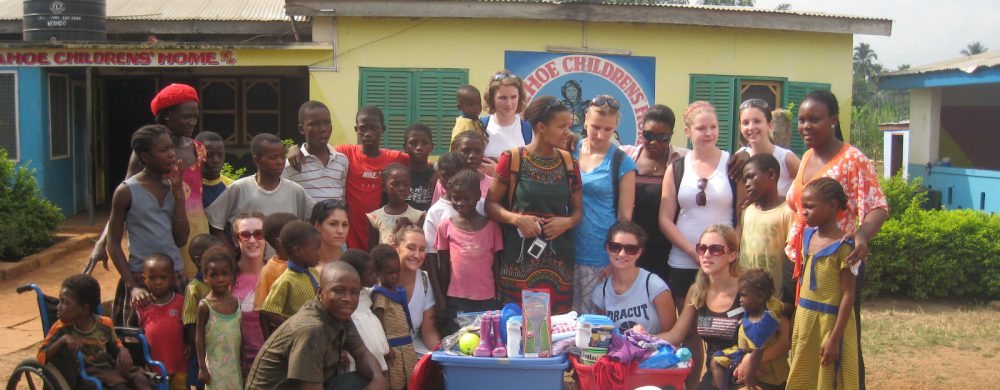Today we implemented our Community Health projects in Ghana. We take a Community Health course during our senior year at UMass Lowell, which teaches us to be a nurses outsides the halls of the hospitals. While still at home, my group of four assessed a small village, decided their largest problem was malaria, and provided teaching and supplies to mothers with young children. Our setting was a small village out in the Volta region, which is eastern portion of the country.
Our intervention went extremely well. Through the use of a translator, we were able to interact with mothers to teach about malaria, prevention, treatment, and usage of a bednet. They were all taught to use thermometers to assess their children for fever, and many left with either a thermometer, a bednet, or both. While we asked for only twenty mothers, closer to forty came to the classroom for teaching. While we could not provide equipment for everyone, at least everyone was able to leave with knowledge. We gave bednets to mothers with the youngest children first when we realized supplies would not be sufficient. While I am upset that not every mother could leave with a net, none of the mothers had or could use a net prior to our lesson. Tonight thirty families will be protected from a potential fatal disease due to our being here. That is a very powerful feeling.
Our debriefing/evaluation was done with our group leader, Maura, who is currently in her third visit to Ghana after her daughter started NSWB three years ago. My group and her were sitting outside the classroom where we gave our presentation discussing what went right and wrong. While it is academically, professionally, and even socially, pertinent that I sit there and engage in the conversation, I was completely not paying attention. It bothered me they could.
We are sitting in a small village, hours away from the capital, with no running water, no sewage systems, no internet, little electricity, thousands of miles away from home, teaching an extremely under serviced population through nursing. The town, a part of Peki, it situated at the foot of one of the many mountains in this region. From where we were sitting, I was watching a group of Ghanaian children playing soccer under the shadow of a the mountain, with even younger children curiously poking their heads around corners to catch glimpses of us American visitors. This trip is completely surreal.
Not many people are lucky enough to be in this situation and have this type of impact. I am completely humbled to be in a profession where I can better the health of people from all across the world. While I have taken care of hundreds of patients back home, I cannot believe I can fly across the world and serve people here.
Our group of students and instructors talk a lot about how our pictures cannot justify our experiences over here. It doesn’t matter how many megapixels my camera has, how big the memory cards get, or how eloquently I can write and express myself. If you have not visited this wonderful country: you have no idea what we are experiencing. While we are only a week into the trip, the growth is monumental. We are developing professionally as nurses in addition to our emotional, social, and personal character. And let me again thank everyone person, and organization, who has come through to help us get here. Our parents, friends, faculty, employers, strangers, and more, have all contributed to something extremely special. You have a share in the responsibility for everything we do and become over here, and that may be one of the greatest legacies of all.
